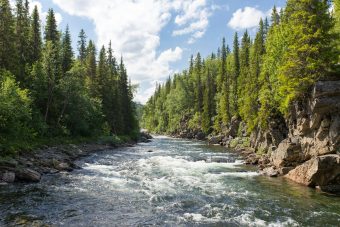Like other environmental sectors, water bodies are facing ecological challenges such as pollution, climate change, unsustainable freshwater management, and habitat degradation. The European Environment Agency (EEA) has published an assessment of the health of European water bodies, indicating that Europe is currently not on track to meet the water quality improvement goals set by the European Union.
The report, titled Europe’s State of Water 2024: The Need for Improved Water Resilience, shows that agriculture has the greatest impact on the degradation of both surface and groundwater. Despite some progress, a significant proportion of European waters remains heavily affected by nutrients and pesticides from agriculture, as well as chemical pollution from airborne emissions caused by coal-based energy production.
Estimates indicate that only 37 percent of European surface waters have achieved “good” or “very good” ecological status, while groundwater is in better condition, with around 77 percent classified as having “good” chemical status. However, groundwater also faces pollution risks, with the main pollutants being nitrates and pesticides, primarily from agriculture.
Each year, approximately 20 percent of Europe’s territory and 30 percent of its population experience water stress—meaning the effects of reduced water availability. Water stress involves not only a quantitative aspect but also a decline in water quality due to pollution. This percentage is expected to increase with climate change. Furthermore, climate change is leading to more intense rainfall, making sustainable and long-term flood risk management increasingly important.
More:
- Are Artificial Rivers the Future of Water Resource Management?
- How Degraded Are Freshwater Systems – What the United Nations Report Reveals
- Why Did a Greek Village Emerge from the Water?

To improve the ecological status of water bodies, it is essential to promote the use of nature-based solutions, such as wetland restoration and river flow revitalization. This also involves modifying physical characteristics and restoring natural river flows by addressing dams and river canalization, which further degrade natural habitats. Allowing rivers to flow freely and restoring wetlands are crucial for healthy freshwater ecosystems, enhancing ecosystem resilience, and reducing flood risks.
Current water management practices in Europe are not sufficiently adapted to cope with the rapid and significant changes brought by climate change. Reducing water stress requires more efficient water use, minimizing leakage in water systems, and implementing efficient devices and processes that increase water reuse. Water pricing is also highlighted as a measure to encourage more rational water consumption. This pricing mechanism can also serve as a tool to fund investments in water infrastructure.
To implement these measures effectively and manage water efficiently, up-to-date and timely data on water quantity and quality are essential. Additionally, improving knowledge and access to precise data is key to ensuring the fair and sustainable distribution of water.
Energy portal



